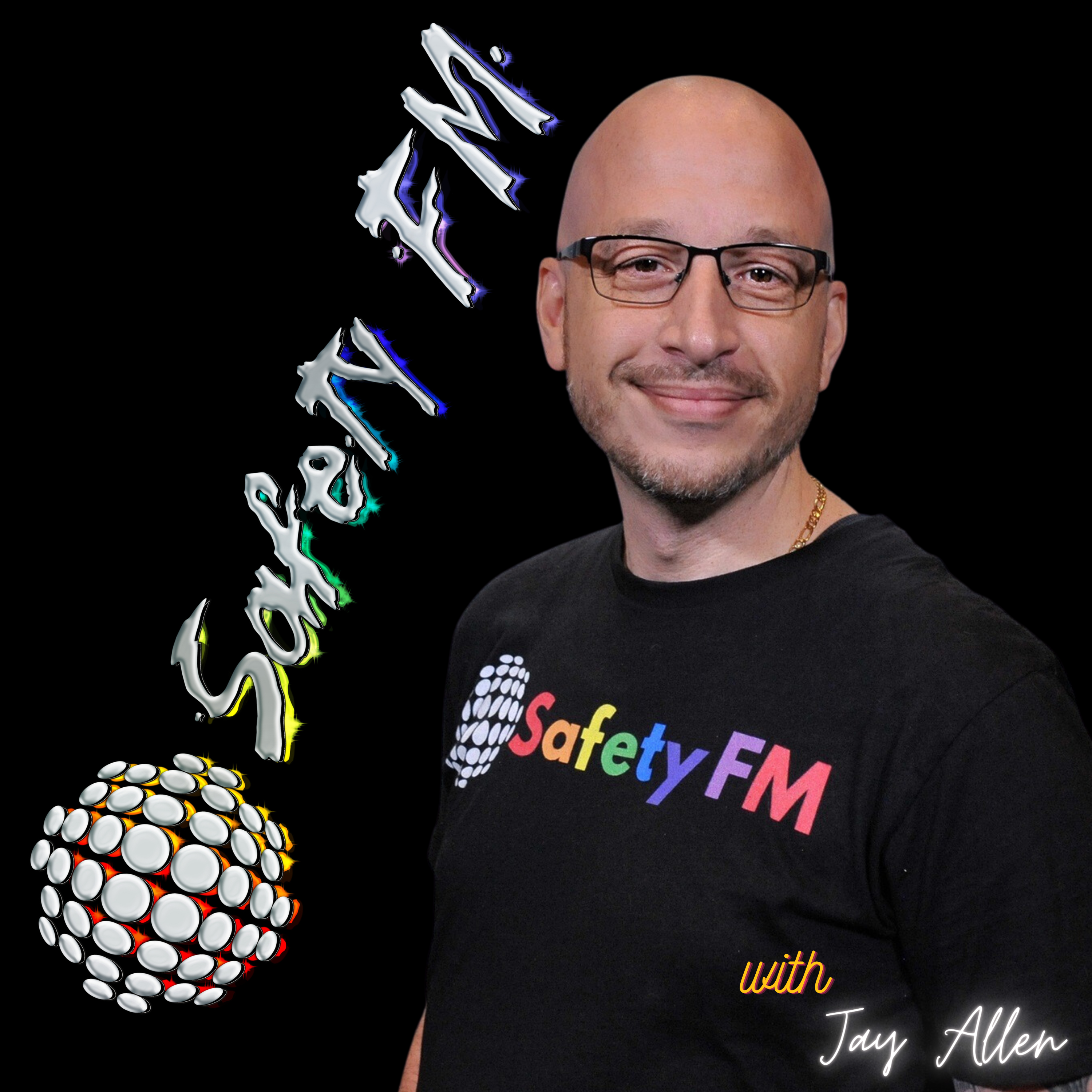Today on Safety FM with Jay Allen, we will discuss the changes to the show and the focus points going forward.
Show Notes
[00:00:00] : Safety F M dot com with J Allen, changing safety cultures, one broadcast and one podcast at a time. Welcome to another episode. Well, I guess we should probably talk about that right away, but this is another episode of what we would call Safety F M or we would call the Jay Allen show or whatever the heck you want to call it. You know, I have to tell you over the last little bit. We've been doing some things that has um well been taking a look around and really focusing on what is important and I kind of noticed to some extent, to some extent, some extent, some extent that we needed to kind of look at our roots that we needed to go back to some of the focal points on how we started this thing. Now, if, if you've been on this ride with me for some time, well, you know that we've been doing this for about five years, a little over five years at this point. And when we originally came out of the gates, we were known as the Safety of Safety F M podcast broadcast. However, you wanted to take a look at it at the time and we did some changes and we added some things onto the radio station and some things to the podcast network. And I'm not gonna say that we lost focus, but I'm gonna say that we kind of did, we did change some of the things that we were doing. So actually talking to some of the people that I, that I respect and I like to interact with. I've come to the conclusion that maybe we need to go back to our roots. We need to go back to where we all started and I want to make sure that as we focus on this, we talk about this on the show and we focus on this as we do everything. So we have reverted back to the original name of the podcast and the broadcast in this show will now go back to safety F M but it will be safe D F M with Jay Allen that way, there's not too much confusion, but I'm still sure that it'll cause some kind of confusion in regards of titling. Listen. However, you're actually getting this video, a podcast, you're still gonna get it the exact same way. Don't worry about that. But all that you're gonna see is that the artworks changed, the covers changed. Um But still the link stuff will be pretty similar. But as I decided to, to go through this and talk about it and really focus on it. I wanted to make sure that we still give you two episodes a week, they're still gonna be on the same day, which will be on Tuesdays and on Fridays. So you don't have to worry about that. But I want to make sure that we're focusing on still the things that are important, which is safety and we are focusing also on psychology. So those things will not change. But what I've noticed that throughout the, the, the last few years is that we focus very heavily on psychology and there's nothing wrong with that. I, I think that it's still a very important subject that we need to discuss as we go through. But I also noticed that we really went far away from what we were doing in regards of interviews and, you know, depending on how you want to take a look at it, there are thousands, thousands upon thousands of interview shows, but we went away from that for a period of time because there were so many other people on our network that were doing it and I started to think about it and went, we do interviews here and there from people in different walks of life. So what if we went back to an interview style show? But we're still focusing on what's important, that's what people are doing in the field, what things are going on within the industry, what things are happening in the world around us opposed to us just talking about psychology the whole time because we have been doing very heavily on that and I know that we've done some interesting and weird tie ins depending on how you want to take a look at it. And some people liked it. Some people didn't and I'm cool with that. I'm cool with, you know, it, um, talking about the things that people do like and the people and the things that people don't like and we heard you loud and clear, listen, we keep on adding things to the radio station. We keep on adding things to our podcast network because we want to make sure that we still end up being a destination location for the things that you're looking for. So I don't ever want that to, to be any different than it is today, but I also want to make sure that we still remained on focusing on the things that we deem that were important as we are talking throughout our network. So with that being said, like I said, at the very beginning, we will go back and revert to safety F M as the name of this show. And we will continue to um to regard it with some of the important things that are well, adding it to safety F M access and saying, hey, that it's with me and listen. I know that there are all kinds of things that are going on inside of our little world. Of safety and there's all kinds of things that we need to talk about. And let's go back to brass tacks and that focusing on the things that we deem that are important, the things that we deem that we should be focusing on in that particular regard, meaning what is going on within the industry, what is going on from the standpoint of everything that is happening when nothing is happening because that's always gonna be another standpoint that we need to talk about. So don't worry about that. We're gonna be here and talk about this. So let's do this. Let's talk real quick and let's go into that whole subject matter. Once again of what exactly are the principles that we mostly focus on, on our network and listen as the network does grow and we continue to do, do a whole bunch of different things. We always and constantly want to talk about what's important to all walks of life inside of this world of safety. But what I'm going to focus on today is the five principles of human and organizational performance. And as I talk about them today, we're gonna give the, the breakdown once again of how um and how we actually um will go through this subject matter. So don't worry about that. So we're gonna go principle one through five. We're not gonna give a, a breakdown of multiple episodes, but we're gonna talk about them as we are going through the whole process right now. And as you know, when you go online, there's all kinds of different ones that you can find out there. But what I'm going to do is I want to talk today about the five as related through seeing through the lens of safety differently as listed in the book from Todd Conklin that came out a few years ago. So if we're gonna give the breakdown, let's kind of go through them slowly but surely. So I'll name them off really quick. All five as we are going through this. So human error is normal, blame fixes nothing. Learning is vital context drives behavior and how you respond to failure matters. So we should we do it just one more time just so before we can all be on, on the same page. I mean, I just wanna say that. So here we go. Number one, human error is normal. Number two, blame fixes nothing. Number three, learning is vital. Number four, context drives behavior in number five, how you respond to failure matters. Now, I will tell you, I'm telling you them directly off the book and but there's always been that kind of weird debate when it comes to number five. If it's how you respond to failure matters or if it's how management responds to failure matters, so we can talk about that later. But here's the thing when you think about general principles. How do you break these down besides you know, the one through five that I just gave you. But I think we need, and that's the great thing about it is that I'm thinking about it doesn't necessarily mean that it's right or wrong. But I think that we need to really understand what each one means. And I think that there will be some verity depending on, you know, how you look at these things. And I think one of the most difficult things we run into is that we expect for things to work perfectly within our organization, within our lifetime. Not realizing that human error is the most normal thing that occurs at work, day in and day out. Think about it for a moment. The most amount of errors that occur from the inside of your workplace are based on the person that understands your system the best they also can probably um go ahead and correct those issues as they're moving forward better than most people. But that's the thing that we run into. We run into this problem from time to time to where we think that it has to run perfectly for it to be a success opposed to realizing that that's not exactly how these things work. So think about that as we are talking on this lovely Tuesday, the other portion that we run into is that in retrospect, we always want to be able to have blame, we always want to be able to blame people for things that are occurring. We want to be able to say, hey, this is what went wrong and Joe Blow from down the block is to blame for what occurred. But guess what? Just because you turned around and said Joe Blow from down the block is to blame with this does not mean that the problems are resolved does not mean that the issue has went away. Think about that for a moment. I mean, it's a hard pill to swallow. Let's, let's not lie here. But it's one of those weird things that we have to think about just because we have that emotional event that occurs that we're able to get that out of our system and say, hey, listen, this person is to blame, didn't correct anything, we didn't learn anything from it. It was just uh a point of interest at that particular moment in time. Now, here's the fun part is that going to change in the near future? No, there's a lot of practice that has to go into place to be able to do this. Let's not lie to each other and go how the world is perfect because it's not, the next thing we should probably talk about is learning is vital. And I think that that's where a lot of us fail at. We tend to forget to learn about the things that are going on within our system. And we all want to say that we have these great systems inside of our organization. But we tend to forget that we need to learn from the world that is around us and asking questions might be the best thing to do inside of the organization. For some reason, there is still this weird belief that supervisors and managers believe that they should know everything about everything that is going on within the organization. And as much as I would love to say that that's not the case. I think that what we need to do more frequently is ask the people that are actually doing the work because the people that are actually doing the work, understand it better than anyone else that of what's going on inside of that system, then you will or than I ever will. I know that that's a tough one. I mean, you kind of feel that one that's, that's kind of like the punch in the gut, but think about it, think about it for just a moment. If you learn from the people that are doing the work, how much further could you go? And there's ways to do that and we can get into some of that information. The other thing, context drives behavior. What comes to mind when you hear that? Like when you hear that term, what do you think about automatically? Like what exactly does that go to? So if I gave you the definition context drives behavior here. Context is the circumstance that forms the setting for an event such as fatigue production demands or broken equipment for every workplace injury, various circumstances lead to the behavior that resulted in the injury. That's what some people believe is that how you look at it? Are you ok with that? I mean, there's so many different aspects on how people look at this stuff. What do you think when you hear that the other portion that you can look at is go behavior is the context and environment is the fundamental concept in psychology that emphasizes the importance of understanding the multiple factors that influence the behavior in different environments. You see where you can actually go down several different rabbit holes just by starting to talk about this. Do you see where things can change on how the way that you'll look at something might be slightly different? And of course, number five, how you respond to failure matters. Now, listen, it's an all pretty scenario when we start talking about how we want to focus on some of these things and change the world around us. But it doesn't necessarily mean that that's always how it's going to be. Sometimes we have a very hard time responding to failure. Listen, between you and I, I'd rather have an injury than a death at a workplace. I know not really something that people wanna say, but think about it, think about what I'm saying. So as we move forward and talk about this, how we even respond to a single incident is going to matter within the organization. There's multiple different ways to look at it. I have never been a big fan of those boards that say we've had no injuries in the last 105 days incident free because I just don't think it's realistic. I believe that there are incidents that occur on a daily basis within your organization and it really just depends on how you are deciding to track it. I know we've discussed this before on this show where we've talked about organizations that I've interacted with that for them not to put it on the board. What they would do is that they would tell people that they would have to take time off during that time. If they had an injury, if they had something that had went wrong, that way, it would not count against what the hell was going on within the organization. I mean, it's an interesting one when you really start thinking about it opposed to it being one of those things where we start talking about, hey, maybe we should look at all these things differently and, and, and, and go into the deep dives of what occurred and how we're going to react to some of these things. If you're expecting everything to be perfect all the time, I got bad news for you. Things are not going to work, just not the way that it goes. But if we start taking a look at it and go, hm. I know that things are going to fail and how I respond to it is really gonna play the biggest factor into the environment inside of the organization. Maybe you got something else to look at there, just stuff to think about. So there you go. That's essentially going back to the five principles. And I think it's always important to discuss. So if we're gonna give the breakdown once again, let's go through all five. Again, human error is normal, blame fixes nothing. Learning is vital context, drives behavior and how you respond to failure matters. Listen, we all need to have some kind of foundation in regards to how we're moving forward. And I, I understand that there are people that are going around and talking about how, you know, it's all about the label and the labeling and all that fun stuff. And you know, people get misconstrued and misunderstand, what the hell is going on because the labels, I think that's a discussion for another day. Let's just be realistic. But as we talk about this today, let's focus on what the foundation is going to be going forward. Not that we really ever lost the foundation. But I wanna make sure that we understand that when we talk to people and we have this discussion, we understand that we have a foundation to everything. I don't want to promise you anything in regards of what we're going to do, going forward. But we will go into some of the aspects of the things that we did that you enjoyed when it comes down to the whole interviewing side and really talking into more of the safety side, we'll still talk about psychology from here and there. Don't worry about that. And yes, if you want to, you know, get into some of the other things that are going on on the station, you're more than welcome to succumb to Safety F M dot com and you can take a listen to all the other shows that are on there. About 18 different different shows that are there with multiple different hosts. And of course, we still host every morning, the rated R Safety Show Monday through Friday. So you don't have to worry about that. That's not going anywhere. So that's it. That's what I got. So the show has been been uh I guess renamed, we'll say renamed to Safe D F M with Jay Allen. So that's what's going on now. We will use the, the five principles of hop as the foundation to this whole thing. And then we will continue to move forward and talk about everything that's going on within our industry. So with that being said, that's gonna sell off our time together today. So don't worry about that. We will be back with Safe D F M many coming, this coming Friday and talk about some more things that are going on and until then, well, take care of yourself, be kind to each other because I've been told that that's super important. Seriously. Think about the way that we look at the world and using these five principles signs that it could change. The organization can really change all different aspects of your life. I've been your safety manager and host Jay Allen. And until next time, be safe safety F M changing safety cultures, one broadcast and one podcast at a time. The views and opinions expressed on this podcast are those of the host and its guest and do not necessarily reflect the official policy or position of the company. Examples of analysis discussed within this podcast are only examples. They should not be utilized in the real world as the only solution available as they are based only on very limited and dated. Open source information. Assumptions made within this analysis are not reflective of the position of the company. No part of this podcast may be reproduced stored in a retrieval system or transmitted in any form or by any means, mechanical, electronic recording or otherwise without prior written permission of the creator of the podcast, J Allen.
Listen On
Also Listen
-
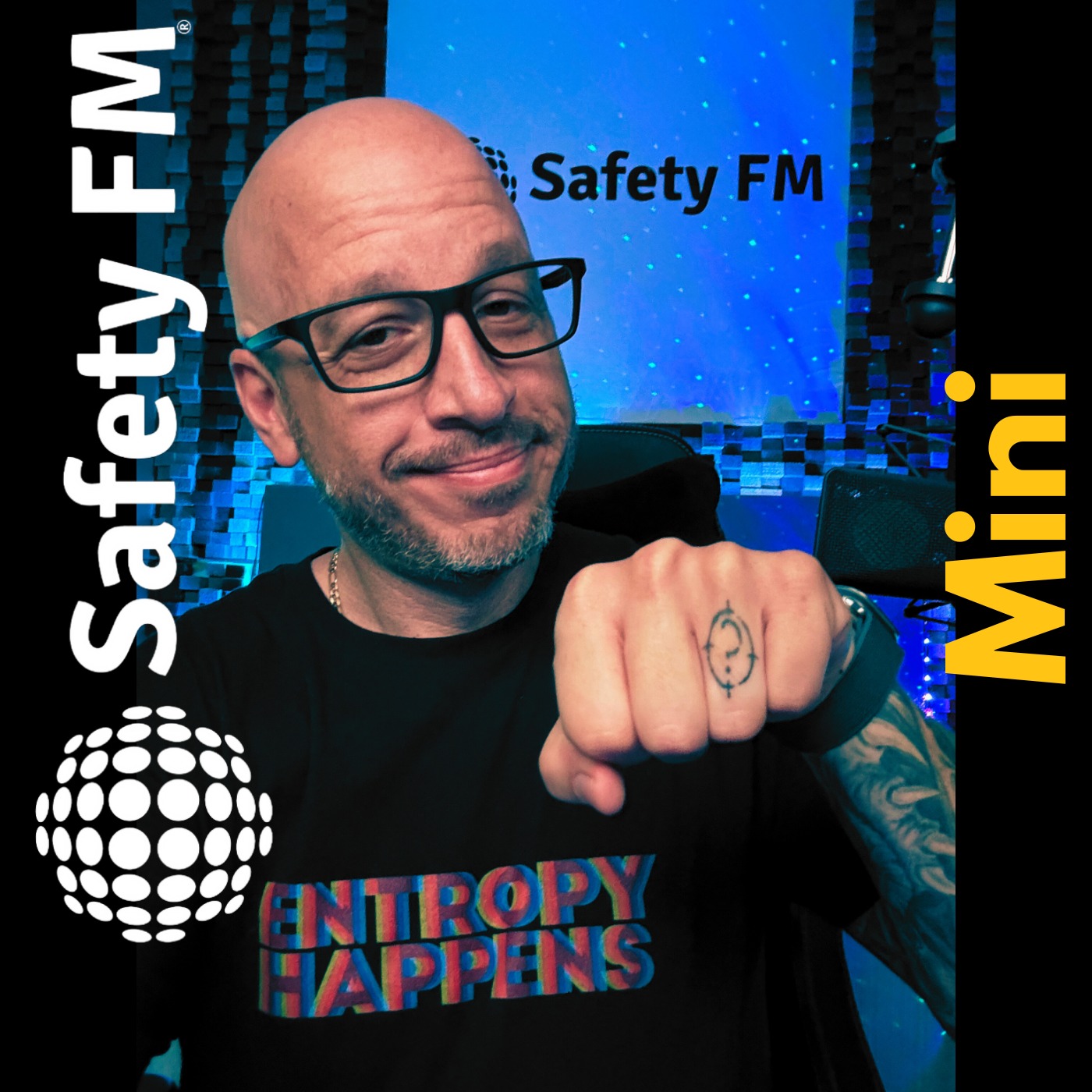
Episode 767 – Safety FM Mini: “Do Something Different”
In this short and reflective Mini episode, Dr. Jay Allen invites you to step awa -
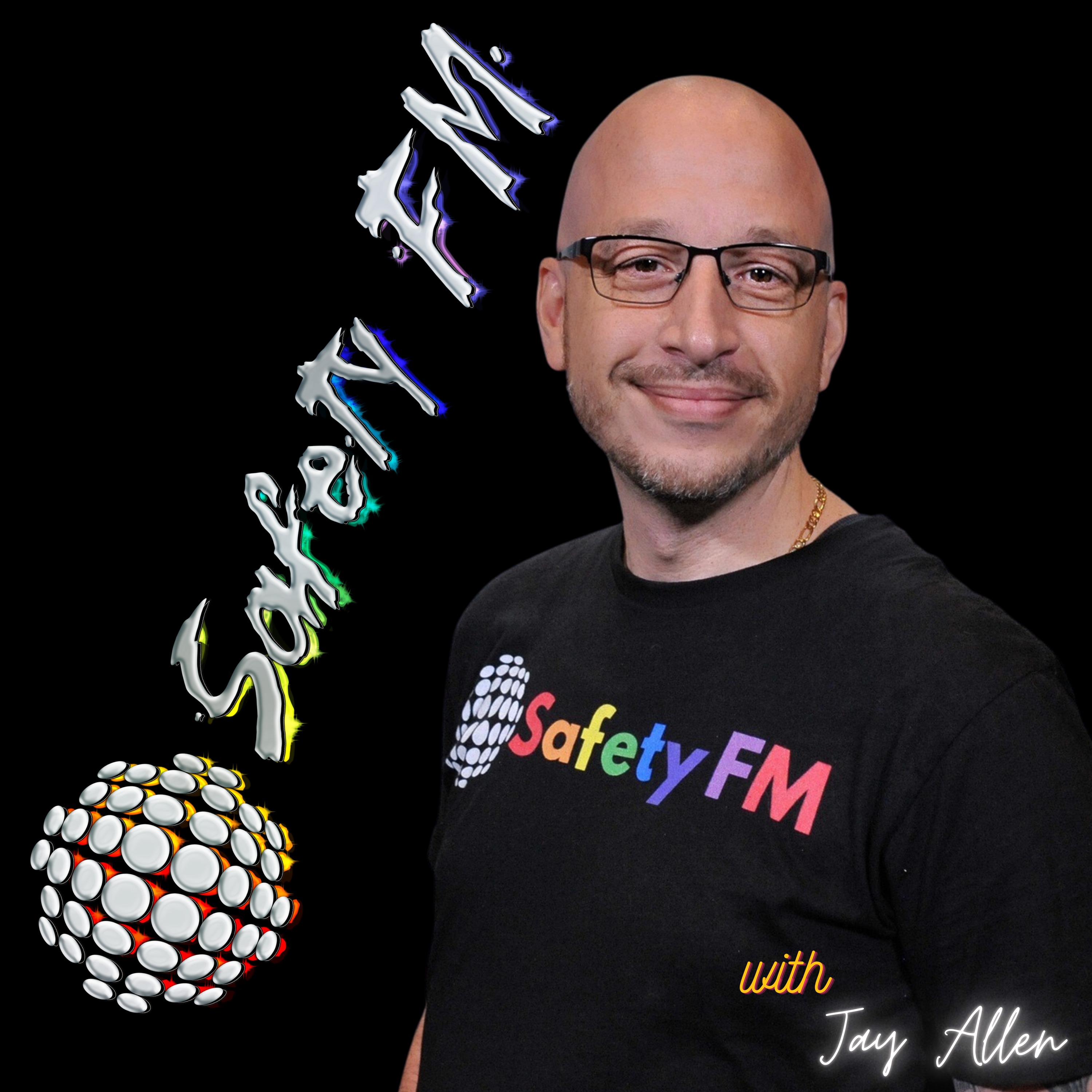
EP 766 - The Foundation of Safety: Principles, Values, and the Cog of Change
In this repurposed main story from The Rated R Safety Show, Dr. Jay Allen explor -
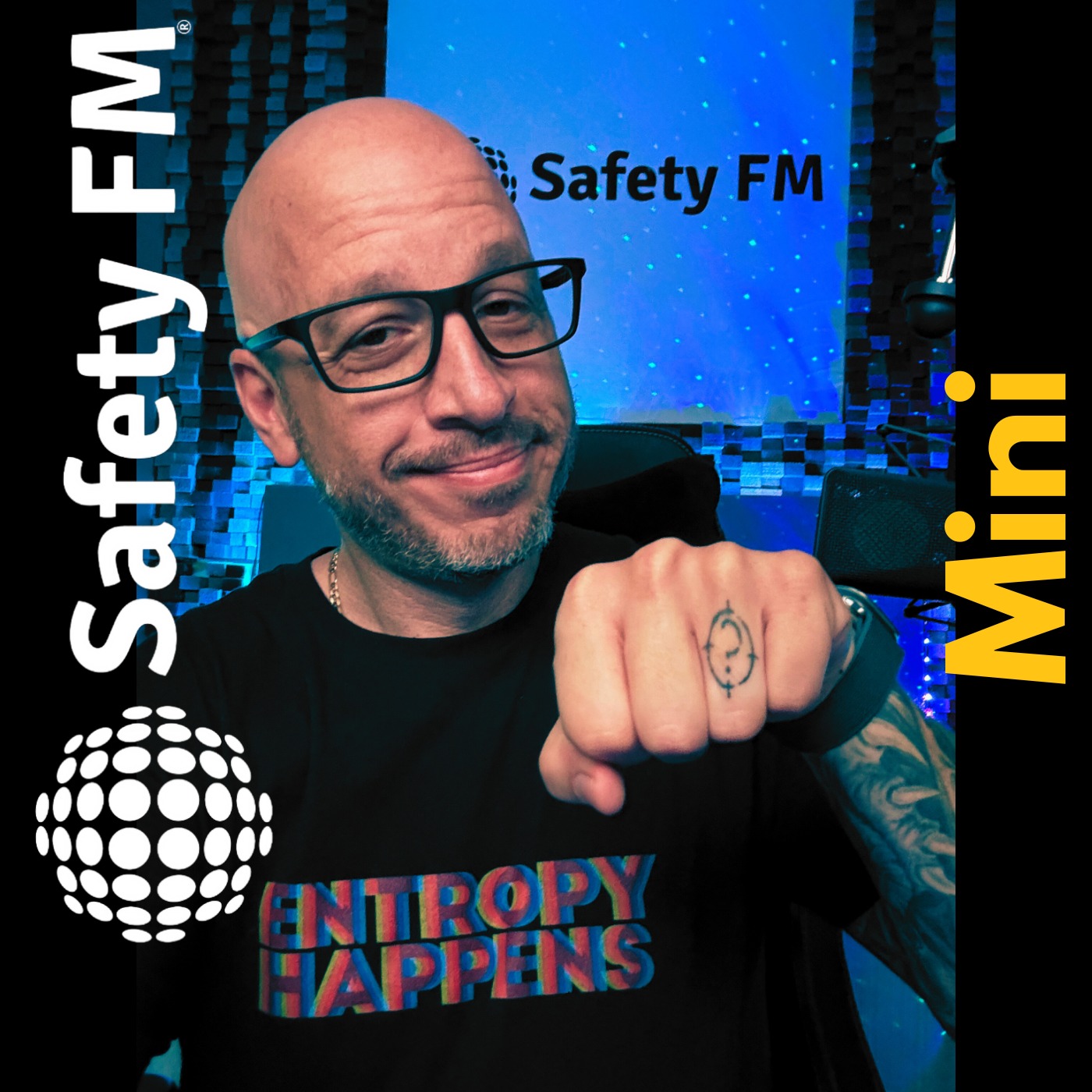
EP 765 - Mini - The Bureaucracy of Change
In this Safety FM Mini, Dr. Jay Allen explores why workplace change can be light -
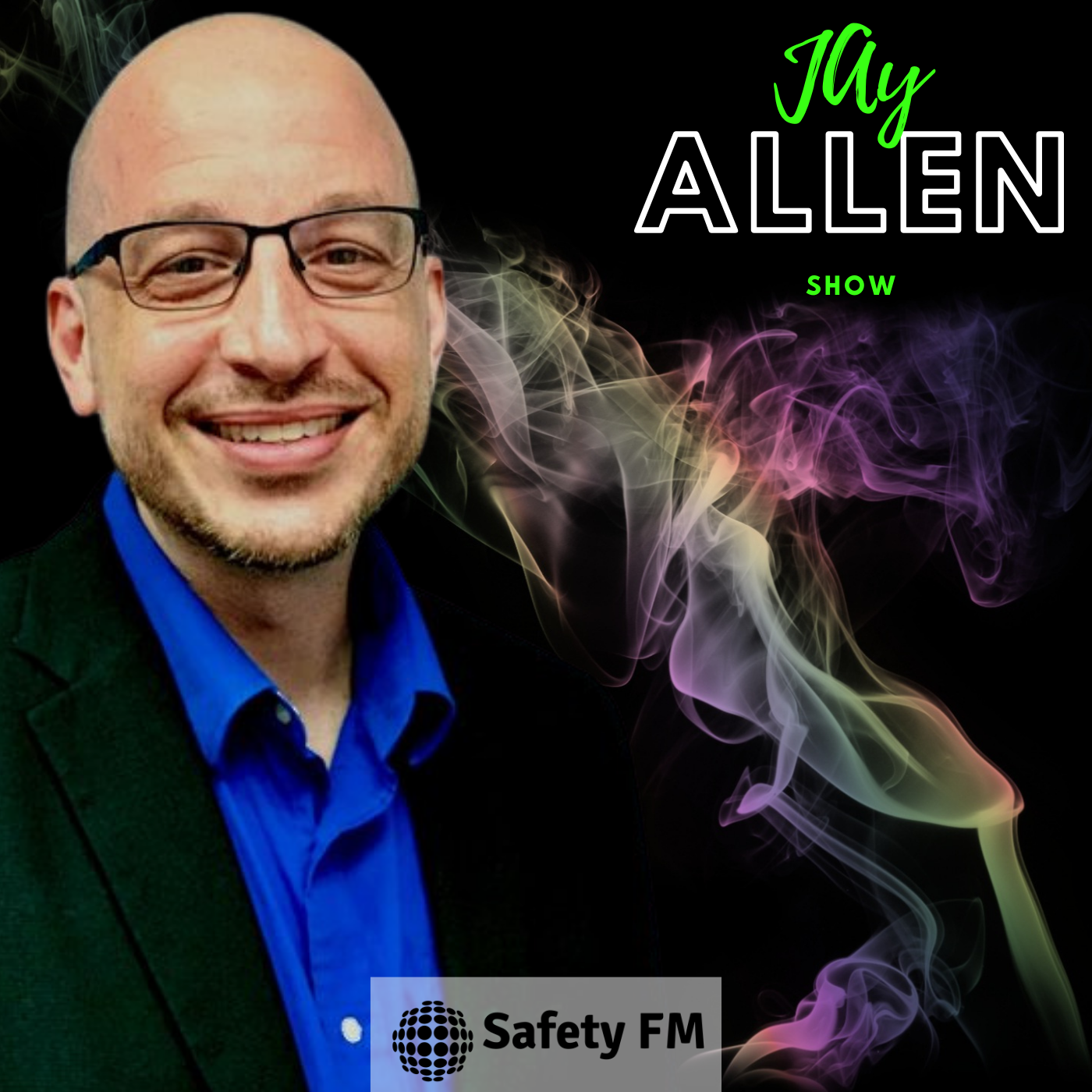
EP 764 - When Priorities Collide: The Hidden Patterns Behind Workplace Shifts
Have you ever been deep into an important project, only to have everything sudde

